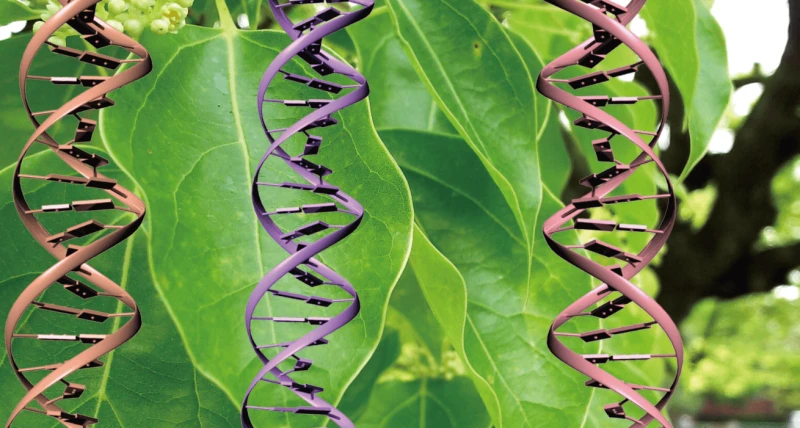Picking up where GMOs left off: CRISPR leads the way to ‘greener’ food production in the 21st century
Picking up where GMOs left off: CRISPR leads the way to ‘greener’ food production in the 21st century


Genome editing may be one of the solutions to address climate change. A September 2020 report by the Information Technology & Innovation Foundation (ITIF), Gene Editing for the Climate: Biological Solutions for Curbing Greenhouse Emissions, emphasizes that gene-editing technology could be used to develop clean energy and climate solutions that policymakers have to date under-emphasized.
CRISPR and the newer gene-editing applications are also being used to address food issues by reducing apple or potato browning and tomato softening to extend the shelf life of produce. In addition, disease-resistant fruits are under development, such as the Panama disease resistant Cavendish bananas that are being field tested by Tropic Biosciences.
Furthermore, many companies are focusing on extending the nutritional value of food by adding more protein to soy and other staple crops, and making oils, including soybean and canola, healthier…Another firm of note, Pairwise Plants, is working to develop new and delicious types of leafy greens, berries, and cherries, along with other efforts in staple crops.
The role of technology and its impact on agriculture is unprecedented. According to [Yeild10’s OIiver] Peoples, it is important to start by looking at fundamentals in a scientific way and first ask whether a change makes sense; if it has a meaningful impact and is sustainable.
Read the original post

 | Videos | More... |

Video: Nuclear energy will destroy us? Global warming is an existential threat? Chemicals are massacring bees? Donate to the Green Industrial Complex!
 | Bees & Pollinators | More... |

GLP podcast: Science journalism is a mess. Here’s how to fix it

Mosquito massacre: Can we safely tackle malaria with a CRISPR gene drive?

Are we facing an ‘Insect Apocalypse’ caused by ‘intensive, industrial’ farming and agricultural chemicals? The media say yes; Science says ‘no’
 | Infographics | More... |

Infographic: Global regulatory and health research agencies on whether glyphosate causes cancer
 | GMO FAQs | More... |

Why is there controversy over GMO foods but not GMO drugs?

How are GMOs labeled around the world?

How does genetic engineering differ from conventional breeding?
 | GLP Profiles | More... |

Alex Jones: Right-wing conspiracy theorist stokes fear of GMOs, pesticides to sell ‘health supplements’




 Trust issues: What happens when therapists use ChatGPT?
Trust issues: What happens when therapists use ChatGPT? California, Washington, Oregon forge immunization alliance to safeguard vaccine access against federal undermining
California, Washington, Oregon forge immunization alliance to safeguard vaccine access against federal undermining Fighting deforestation with CO2: Biotechnology breakthrough creates sustainable palm oil alternative for cosmetics
Fighting deforestation with CO2: Biotechnology breakthrough creates sustainable palm oil alternative for cosmetics Viewpoint — Fact checking MAHA mythmakers: How wellness influencers and RFK, Jr. undermine American science and health
Viewpoint — Fact checking MAHA mythmakers: How wellness influencers and RFK, Jr. undermine American science and health 30-year-old tomato line shows genetic resistance to devastating virus
30-year-old tomato line shows genetic resistance to devastating virus The free-range chicken dilemma: Better for birds, but with substantial costs
The free-range chicken dilemma: Better for birds, but with substantial costs Viewpoint: Video — Big Solar is gobbling up productive agricultural land and hurting farmers yet providing little energy or sustainabilty gains
Viewpoint: Video — Big Solar is gobbling up productive agricultural land and hurting farmers yet providing little energy or sustainabilty gains ‘You have to treat the brain first’:Rethinking chronic pain with Sanjay Gupta
‘You have to treat the brain first’:Rethinking chronic pain with Sanjay Gupta
